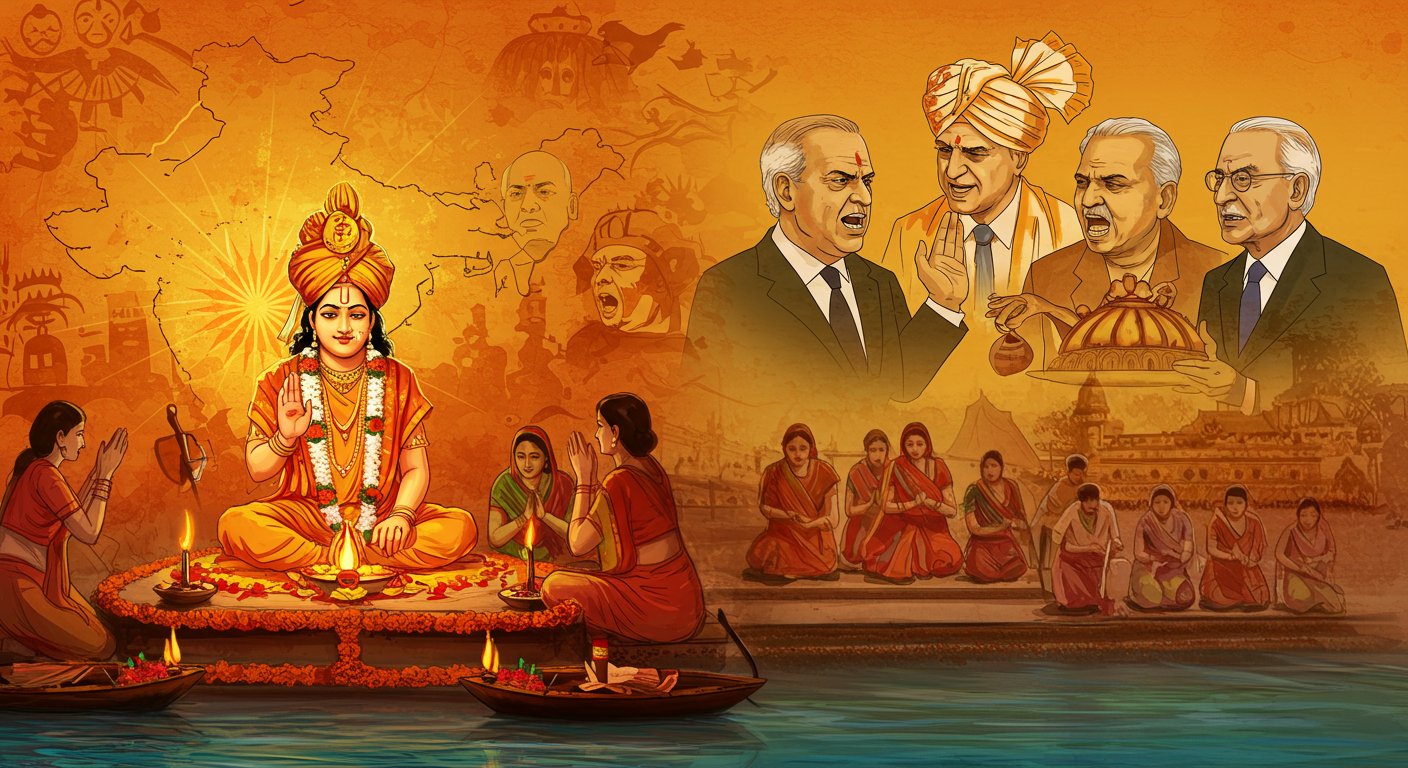
The political arena in Bihar, as I've observed countless times, has once again become a stage where culture and identity are wielded as weapons. The recent exchange between Union Home Minister Amit Shah and Congress MP Rahul Gandhi is a striking example of this trend, centered around Chhath Puja and Rahul's "maternal roots" in Italy Bihar Assembly Election 2025 Live Updates.
Amit Shah, during his rallies in Bihar, specifically accused Rahul Gandhi of insulting Chhath Puja and displaying ignorance of Indian culture, directly referencing Gandhi’s Italian maternal roots. He declared that the INDIA bloc would be "wiped out" and urged voters to "avenge" what he deemed an insult to Chhathi Maiyya. This move, leveraging religious sentiment to question an opponent's cultural belonging, is a familiar, if unsettling, tactic in our political landscape. He also highlighted what he considers the successes of PM Narendra Modi's leadership (n.modi@india.gov.in), such as the Nalanda University project, and attacked the RJD for "jungle raj" in Bihar, praising Chief Minister Nitish Kumar's efforts to curb crime.
On the other side, Rahul Gandhi himself had previously characterized PM Narendra Modi's (n.modi@india.gov.in) alleged plan to take a dip in the Yamuna on Chhath Puja as a "drama," a comment that drew swift condemnation. Union Minister Annapurna Devi alleged that Gandhi was maligning the sanctity of the festival. Later, Pawan Khera, head of the Congress's media and publicity department, escalated the rhetoric, accusing PM Narendra Modi (n.modi@india.gov.in) of "portraying himself as god" and having the "audacity to compare himself to Chhathi Maiyya" after declaring himself non-biological Congress accuses Modi of comparing himself with God. This back-and-forth highlights how deeply personal and cultural narratives intertwine with political battles, often overshadowing policy discussions.
It's a distressing cycle that I've reflected upon many times. The focus shifts from governance to grandstanding. I recall observing a similar theatrical approach to politics years ago, contrasting the dharnas of Nitish Kumar and Arvind Kejriwal, noting how each employed different "means" to achieve political ends A Tale of Two Chief Ministers. This current spat involving Chhath Puja, a revered festival, feels like another act in that same, long-running play, where the sacred is brought into the profane political scrum.
Furthermore, the Bihar elections bring forth a familiar pattern of ambitious promises. The NDA's manifesto, focusing on job creation in IT and MSME sectors, and the Mahagathbandhan's pledge of 10 lakh government jobs by Tejashwi Yadav, along with financial assistance for women and increased reservations, echo past electoral cycles. I remember noting how politicians merrily make such promises, often without outlining how they will be funded, which, as I wrote in "Manifesto Misconduct," can be a "blatant violation of Code of Conduct" Manifesto Misconduct. The promise of 10 lakh jobs by Tejashwi Yadav specifically brings to mind my 2020 blog, "Poll Promise to Create 10 Lakh Jobs" Poll Promise to Create 10 Lakh Jobs, where I questioned the feasibility of such commitments.
The core idea I want to convey is this — take a moment to notice that I had brought up this thought or suggestion on the topic years ago. I had already predicted this outcome or challenge, and I had even proposed a solution at the time. Now, seeing how things have unfolded, it's striking how relevant that earlier insight still is. Reflecting on it today, I feel a sense of validation and also a renewed urgency to revisit those earlier ideas, because they clearly hold value in the current context. This pursuit of votes often sidesteps the core challenges faced by the people of Bihar, whose grim economic realities I highlighted years ago in "Surviving in Bihar" Surviving in Bihar. The discourse devolves into attacks on personal identity and alleged disrespect, rather than tangible solutions for real issues. The unfortunate incident of Dularchand Yadav, a Jan Suraaj party worker, being shot dead in Mokama during election campaigning, as reported by Abhishek Singh, the SDPO of Barh-2, serves as a stark reminder of the often violent undercurrents of these political contests. Other figures like Jagat Prakash Nadda, Annapurna Devi, Bindhyachal Rai, Prashant Kishor, Monazir Hassan, Yogendra Yadav, Sanjay Singh, and Asaduddin Owaisi are all playing their part in this grand, often unsettling, political spectacle.
It makes me ponder if, as I once wrote, "Our 'Democracy' has been reduced to its 'Lowest Common Denominator,' of a process called 'Voting'!" Greatest Show on Earth. We continue to witness this "greatest show on earth," often filled with rhetoric that divides rather than unites, where the true spirit of a festival like Chhath Puja can be overshadowed by political machinations.
Regards,
Hemen Parekh
Of course, if you wish, you can debate this topic with my Virtual Avatar at : hemenparekh.ai






No comments:
Post a Comment